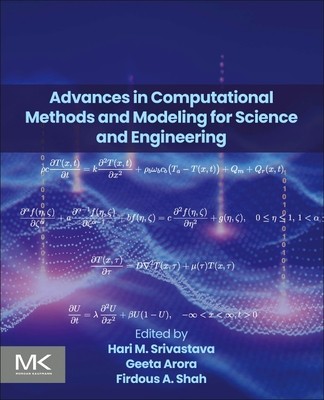
- We will send in 10–14 business days.
- Publisher: Morgan Kaufmann Publishers
- ISBN-10: 0443300127
- ISBN-13: 9780443300127
- Format: 21.7 x 27.3 x 1.7 cm, minkšti viršeliai
- Language: English
- SAVE -10% with code: EXTRA
Advances in Computational Methods and Modeling for Science and Engineering (e-book) (used book) | bookbook.eu
Reviews
Description
Advances in Computational Methods and Modelling in Science and Engineering is a comprehensive guide that explores the application of computational techniques and modelling approaches in science and engineering, providing practical knowledge and skills for tackling complex problems using numerical simulations and data analysis. This book addresses the need for a cohesive and up-to-date resource in the rapidly evolving field of computational methods. It consolidates diverse topics, serving as a one-stop guide for individuals seeking a comprehensive understanding of the subject matter. Advances in Computational Methods and Modelling in Science and Engineering focuses on mathematical techniques that provide global solutions for models arising in engineering and scientific research applications by considering their long-term benefits. The mathematical treatment of these models is very helpful in understanding these models and their real-world applications. The methods and modelling techniques presented by the authors are useful for mathematicians, engineers, scientists, and researchers working on the mathematical treatment of models in a wide range of applications, including disciplines such as engineering, physics, chemistry, computer science, and applied mathematics.EXTRA 10 % discount with code: EXTRA
The promotion ends in 23d.13:02:01
The discount code is valid when purchasing from 10 €. Discounts do not stack.
- Publisher: Morgan Kaufmann Publishers
- ISBN-10: 0443300127
- ISBN-13: 9780443300127
- Format: 21.7 x 27.3 x 1.7 cm, minkšti viršeliai
- Language: English English


Reviews